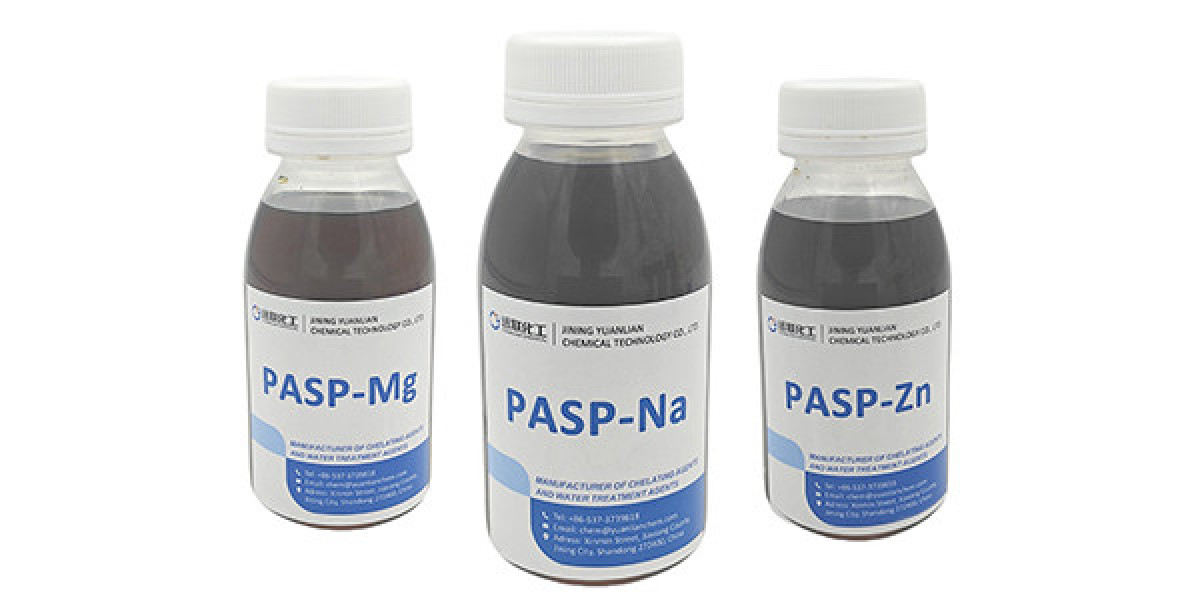What Exactly is Polyaspartic Acid?
Polyaspartic Acid is a water-soluble, biodegradable polymer. Its structure is inspired by a naturally occurring amino acid (aspartic acid), making it a brilliant example of biomimicry. Scientists have successfully synthesized it to create a long-chain molecule with exceptional capabilities.
Its most compelling feature is its inherent environmental profile:
Highly Efficient: It boasts powerful scale inhibition and dispersing properties.
Readily Biodegradable: It breaks down naturally into water, carbon dioxide, and nitrates, leaving no persistent pollutants behind.
Non-Toxic & Eco-Friendly: It is phosphorus-free and safe for aquatic and terrestrial life.
Because of these attributes, PASP is widely regarded as the ideal, sustainable alternative to traditional, polluting chemicals.
Key Applications: Where Polyaspartic Acid Shines
1. Revolutionizing Water Treatment
Traditional scale inhibitors can be harsh on the environment. Polyaspartic Acid changes the game.
Superior Scale Inhibition: It effectively prevents the formation of scale (like calcium carbonate and sulfate) in industrial cooling towers, boilers, and reverse osmosis (RO) membranes. This means better efficiency, less downtime, and reduced energy consumption. {Learn more about our water treatment solutions here.}
Exceptional Dispersancy: PASP keeps suspended particles like clay, silt, and metal oxides in circulation, preventing them from settling and forming sludge. This is crucial for maintaining clean heat exchange surfaces.
2. Advancing Sustainable Agriculture
In agriculture, PASP acts as a brilliant nutrient enhancer.
Boosts Fertilizer Efficiency: Its anionic structure helps chelate (bind to) vital micronutrients such as zinc, iron, and manganese. This keeps these nutrients available in the soil for longer, preventing them from becoming locked up and inaccessible to plants. {Discover our innovative agricultural products based on this technology.}
Promotes Plant Health: By improving nutrient uptake, it leads to stronger root systems, healthier crops, and potentially higher yields, all while reducing the amount of fertilizer needed.
3. Other Promising Uses
The versatility of PASP doesn't stop there. It's also being explored in:
Green Detergents: As a biodegradable builder and anti-redeposition agent.
Personal Care: In cosmetics and hygiene products for its mild and skin-friendly properties.
Why Choose Polyaspartic Acid? The Unbeatable Benefits
Switching to PASP isn't just a technical upgrade; it's a strategic and ethical decision for your business.
Proven Performance: Delivers equal or better results compared to non-biodegradable alternatives like polyacrylic acid.
Regulatory Compliance: Helps your operations meet stringent environmental regulations with ease.
Enhanced Corporate Image: Adopting PASP is a powerful statement about your company's commitment to sustainability and green chemistry.
Reduced Environmental Footprint: This is the core benefit. You can achieve your industrial or agricultural goals while actively protecting our water and soil.
Conclusion: Partnering with a Sustainable Future
Polyaspartic Acid is more than just a chemical; it's a paradigm shift. It proves that we do not have to sacrifice performance for the sake of our planet. As industries worldwide move towards greener practices, PASP stands out as a reliable, effective, and responsible solution.
Ready to integrate this green miracle into your operations? {Contact us today} to speak with our experts and discover how our high-quality Polyaspartic Acid products can drive your efficiency and sustainability goals forward.







